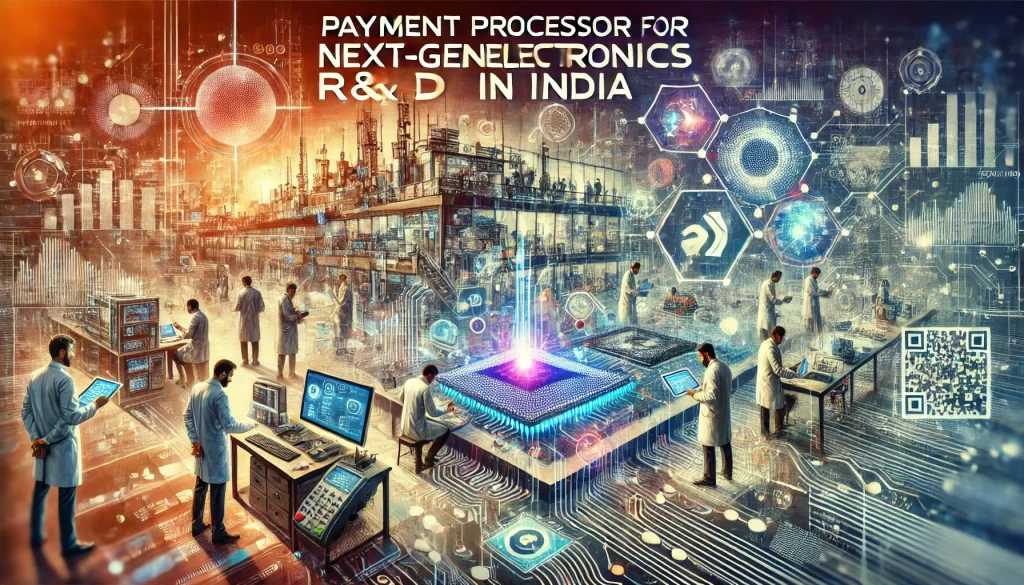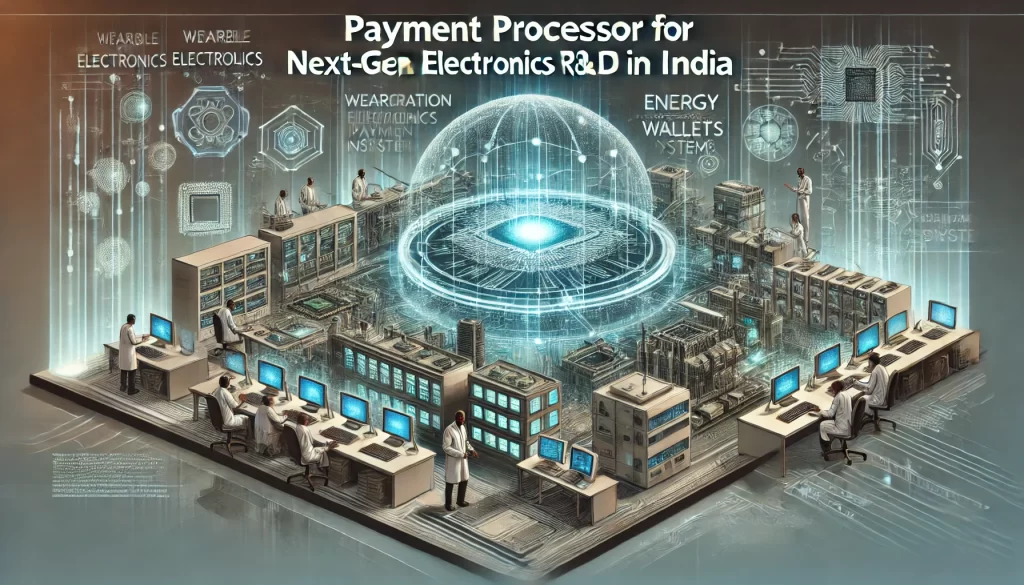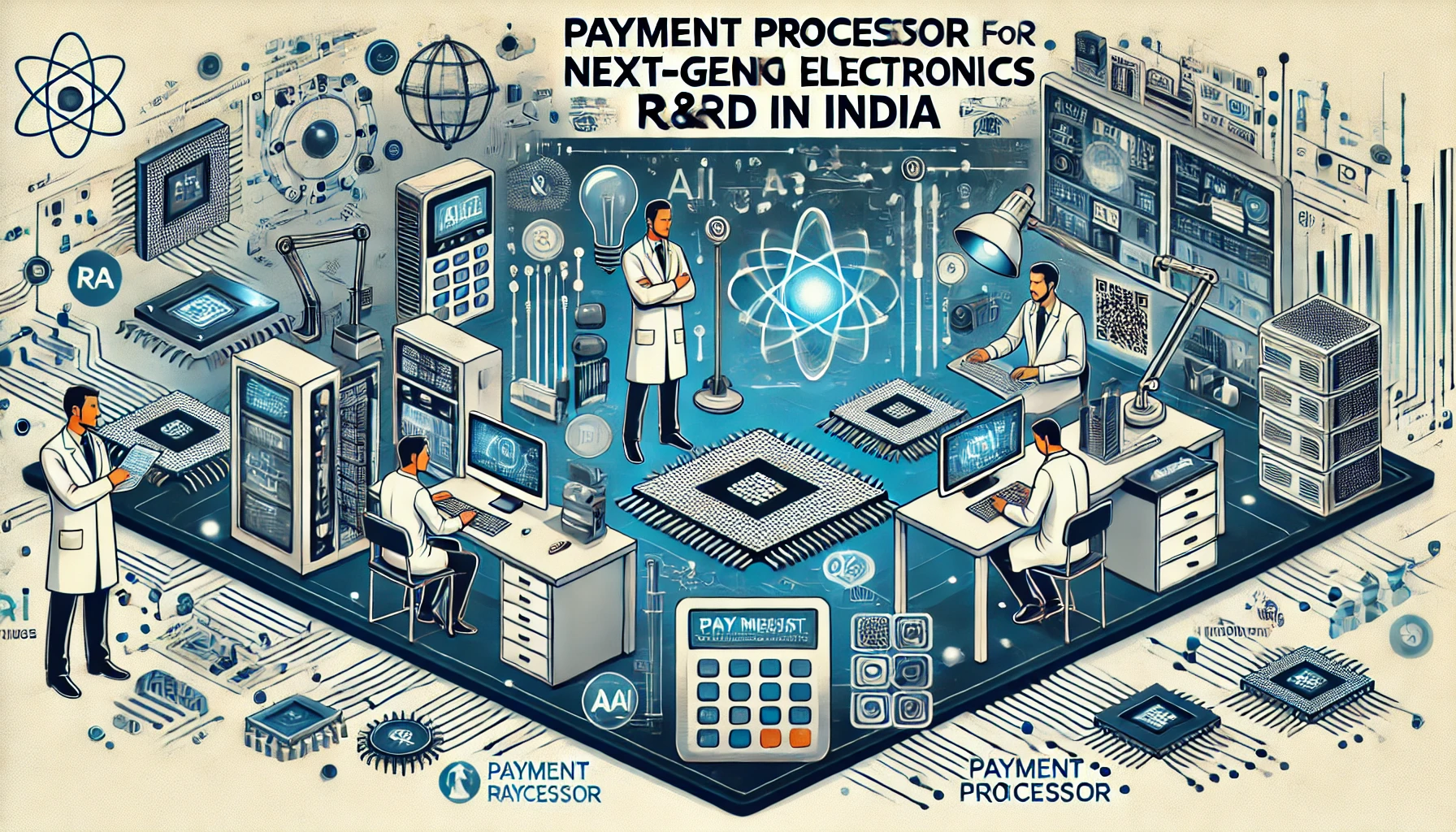Author : Shin Hari
Introduction
India is rapidly solidifying its position as a global leader in technological progress. This includes the integration of innovative payment processors and next-generation electronics research and development. With a flourishing ecosystem of startups, robust government support, and a highly skilled talent pool, the country is well on its way to becoming a significant hub. Payment processors are crucial to the functionality of modern digital economies. They ensure secure and efficient financial transactions that drive the expansion of online businesses. next-gen electronics[1] drive the innovation required to make these systems faster, smarter, and more reliable. Together, they form a powerful synergy that promises to reshape India’s technological landscape.
Understanding Payment Processors
Payment processors are integral components of the digital financial system. They act, in essence, as intermediaries that connect merchants, customers, and financial institutions. Furthermore, these systems ensure that electronic transactions—ranging from credit and debit card payments to mobile wallet and QR code transactions—are processed efficiently, securely, and accurately. In addition, payment processors facilitate businesses by handling critical tasks such as transaction verification, data encryption, and settlement procedures. As a result, they play a pivotal role in streamlining financial operations and ensuring smooth transactions. This ensures smooth and secure transactions. seamless payment[2] experience to their customers
The Significance of Payment Processors
Payment processors are the foundation of India’s booming digital economy[3], handling vast volumes of financial transactions every day. These systems, in fact, guarantee secure and efficient payments via mobile wallets, credit cards, or UPI. Moreover, advanced technologies like tokenization, artificial intelligence-driven fraud detection, and seamless integration with IoT devices have fundamentally revolutionized the way businesses and consumers interact. As a result, these processors have become indispensable. Not only do they provide real-time, secure, and user-friendly financial services, but they also ensure greater convenience and reliability for all users.
The Evolution of Next-Gen Electronics

Next-generation electronics are defined by their ability to integrate advanced technologies like the Internet of Things (IoT), artificial intelligence (AI), quantum computing, and machine learning. These progress are enabling the creation of smarter devices, high-speed communication networks, and energy-efficient systems. Wearable devices, self-driving cars, and AI-powered home automation systems are just a few examples. They highlight the transformative possibilities of emerging technologies. next-gen electronics..
India’s Thriving R&D Ecosystem
India’s status as a thriving center for R&D is strengthened by government programs like “Make in India” and similar initiatives. “Digital India,” which offers incentives for startups and multinational corporations to invest in research. These initiatives provide funding, infrastructure, and policy support, enabling companies to focus on high-tech solutions. These solutions combine payment processing with advanced electronics. Research parks, tech hubs, and partnerships between universities and industry have driven the advancement of innovative technologies.
Challenges and Opportunities
Although there is vast potential, significant obstacles still remain. For instance, these include inadequate infrastructure and a shortage of specialised skills in critical areas like semiconductor technology. Nevertheless, substantial opportunities also exist. In particular, this includes promoting collaborations between industry and academia, fostering global alliances, and, moreover, embracing sustainable practices. Collectively, these strategies can help drive the development of environmentally friendly innovations that not only meet but also align with international standards.
Opportunities for Growth
Partnerships between universities and industry experts, therefore, can drive rapid innovation and technological progress. Specifically, joint research programs, internships, and knowledge-sharing initiatives serve to bridge the gap between theoretical research and practical applications. As a result, this creates a stronger and more sustainable foundation for R&D.
Sustainable Practices in Electronics
As environmental concerns continue to grow, the adoption of sustainable practices in electronics manufacturing and R&D has, therefore, become imperative. In particular, from using renewable energy sources to creating energy-efficient devices, green technologies are gradually reshaping the way electronics are developed. Consequently, these innovations are not only addressing environmental challenges but also setting new industry standards.
Success Stories in Indian

India’s contributions to the global electronics market[5] include progress. in semiconductor design, 5G technology, and IoT applications. Indian R&D centers are increasingly recognized for their expertise and innovation, cementing the country’s status as a global technology powerhouse.
Conclusion
India’s journey in the domains of payment processors and next-gen electronics R&D is a testament to its growing influence in the global technology landscape. India can overcome funding and skill challenges by embracing collaboration and innovation. This will position itself as a leader in these transformative fields.
As technology continues to evolve, the country’s focus on sustainability, inclusivity, and excellence will play a crucial role. These factors will shape the future of global tech.
FAQs
1. What is the role of payment processors in digital transactions?
Payment processors facilitate secure, efficient, and seamless transactions by acting as intermediaries between merchants, consumers, and financial institutions.
2. How is India fostering R&D in next-gen electronics?
India promotes R&D through initiatives like “Digital India” and financial incentives under the PLI scheme, encouraging innovation and domestic manufacturing.
3. What are the major challenges in electronics R&D in India?
The primary challenges include high costs of infrastructure, limited funding for startups, and a skill gap in emerging technologies like AI and blockchain.
4. How can blockchain transform payment processors?
Blockchain ensures secure, transparent, and efficient transactions by decentralizing data storage and minimizing fraud risks.
5. Why is sustainability important in electronics R&D?
Sustainability reduces environmental impact, conserves resources, and aligns with global trends for eco-friendly technology, making it essential for long-term growth.

